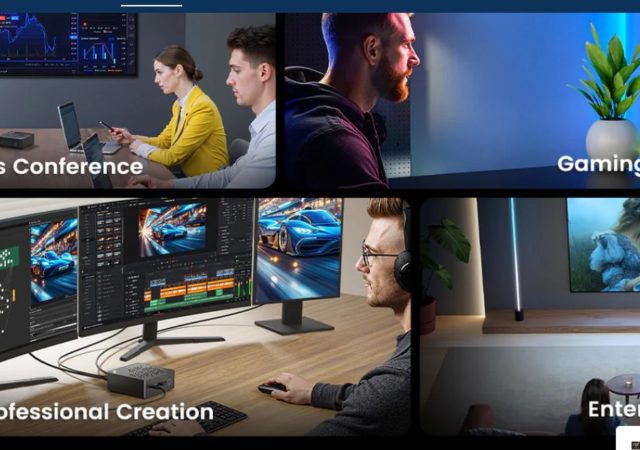Educators must prioritize digital skillset building, reveals Adobe study
SINGAPORE – 12 April 2016 – Adobe today unveiled the findings of its study, ‘Creative Classrooms Through Strong Digital Partnerships’, at the Adobe Education Leaders Seminar 2016, in Penang, Malaysia. More than 1,300 educators across Asia Pacific (APAC) were surveyed for the research report, with the aim of assessing the importance of digital resources in learning and its role in driving communication, building communities and fostering a learning culture in classrooms.
With the arrival of the digital era, employees of today and tomorrow need a vastly different skillset than that of the generation preceding them. Educational institutions are being challenged to deliver programs that build digital skills through rich learning experiences, equipping graduates to cope with changes brought about by technology advances such as multiscreen devices, and Internet of Things (IoT). To keep up with this digital transformation, preparing students with the digital skills needed for success was seen by 80 percent of respondents as most critical.
Educational institutions also need to cater to the “digital native” upbringing of today’s students. In this regard, the implementation of digital communication tools that enable students, faculty and staff to create and deliver powerful, meaningful experiences across a complete range of media channels and platforms, will help with engaging, recruiting and retaining the best students. Creating such a learning environment, however, requires collaboration with the right partners. The study reveals 74 percent of educators in Asia Pacific believe that a strong digital partnership is key to connect with students and make learning more immersive and fun. The study also highlighted the top concerns and barriers to digital enrichment in educational institutions. Across Asia Pacific, educators felt that developing blended programs for critical thinking and creative problem solving (75 percent) and building engaging and interactive learning content (74 percent) were the top two crucial areas to overcome in order to develop an effective digital learning program.
“Digital businesses are driving large scale technical innovations and technology trends,” said Tony Katsabaris, Senior Director for Education & Government, Adobe Asia Pacific. “It has become imperative for educational institutions to modernize, stay relevant and provide students with skills that are necessary for success after graduation. Moreover, education institutions are facing pressures to provide an adequate infrastructure, one that can only be realized through consistent training, updated technology resources and relevant course applications. Enabling success through enhanced digital experiences as part of the learning process is identified as a critical driver for educators across Asia Pacific, and 65 percent of those surveyed look to Adobe to provide the instructional resource and curriculum necessary for that.”
“Digital literacy will open doors to knowledge and to the market place in the 21st century. Developing digital literacy skills, whether in school or post-secondary education, will help students to communicate effectively, express and share ideas digitally, and build creativity and critical thinking skills. It will help them be more effective, to do their job well and to be better prepared for career success in the workplace,” said Callistus Chong, Director, School of Design and Media, Institute of Technical Education, Singapore.
The research reveals that over the next three years, APAC educators will be focusing on creating rich learning experiences that improve student outcomes and measuring it, as well as preparing their students with the digital skills they need to be successful.
The findings are a testament to education’s current needs, especially the importance of addressing the classroom of the future; inspiring and empowering students, other educators and institutions with the digital tools and curricula that promote creativity; and equipping them with digital technologies and digital literacy skills to improve student outcomes and prepare them for career success.
The detailed report and info graphics can be downloaded at:
COUNTRY COMPARISONS ACROSS ASIA PACIFIC
· In Australia and New Zealand (ANZ), creating rich learning experiences that improve student outcomes with measurable metrics was seen as the most important factor. This is reflective of the overall APAC trend but ANZ leads the region at 92%. Educators in ANZ also place more importance on their professional development and in keeping their own professional skillset current. In this respect they are looking for support from their digital partner.
· Educators in Southeast Asia place a high emphasis on preparing students with the digital skills needed for success, with 84% of respondents saying it is important compared to the rest of the region at 80%. However, building engaging and interactive learning content is a lower priority at 69%, notably lower than the regional average of 74%.
· A key priority for educators in India is to create rich learning experiences that improve student outcomes with measurable metrics. However an area of concern is that educators are placing less importance than the rest of the region on developing blended programs for critical thinking and creative problem solving, with only 69% saying this is important compared to the APAC average of 75%. They are also less focused on building engaging and interactive learning content.
· Educators in Greater China rank the importance of creating collaborative platforms for students to work together higher than the regional average – 76% compared to 68%. They are also less concerned about a nurturing environment being critical to success, ranking it at 71% compared to the regional average of 88%. In a competitive education landscape like Greater China, there is pressure to differentiate institutions and curricula. Respondents accordingly ranked this higher than the regional average – 65% compared to 54%.
· Educators in Korea strongly feel the importance of a nurturing environment as a catalyst for success. This is the highest in the region at 98%, compared to the APAC average of 88%. Developing blended programs for critical thinking and creative problem solving was seen as most important at 80%, much higher than the regional average of 75%. Similar to and even more than Greater China, 67% of respondents in Korea saw the need for institutional differentiators as a key priority in the next three years.
|
Key concerns
|
APAC
|
ANZ
|
India
|
Greater China
|
Southeast Asia
|
South Korea
|
|
Developing blended programs for critical thinking and creative problem solving
|
75%
|
75%
|
69%
|
77%
|
75%
|
80%
|
|
Building engaging and interactive learning content
|
74%
|
74%
|
62%
|
68%
|
69%
|
72%
|
|
Creating collaborative platforms for students to work together
|
68%
|
65%
|
62%
|
76%
|
68%
|
73%
|
|
Priority areas for the next 3 years
|
APAC
|
ANZ
|
India
|
Greater China
|
Southeast Asia
|
South Korea
|
|
Creating rich learning experiences that improve student outcomes and measuring it
|
83%
|
92%
|
85%
|
73%
|
84%
|
76%
|
|
Preparing students with the digital skills they need to be successful
|
80%
|
85%
|
73%
|
79%
|
84%
|
74%
|
|
Differentiating our institution from others
|
54%
|
44%
|
53%
|
65%
|
46%
|
67%
|
About Adobe Education Leaders Seminar Series 2016
The Adobe Education Leaders Seminar Series is Adobe’s flagship education thought-leadership event series in Asia Pacific. The theme of this year’s events is “Transforming Education for Student Success in a Digital World”. The seminar series will bring together Asia’s eminent thought leaders, industry professionals and education leaders, and will provide a great opportunity to connect, to inspire, to be inspired and to grow as leaders together.
Key speakers at this event series include:
· Tony Katsabaris, Senior Director of Education & Government, Adobe Systems Incorporated, APAC. Tony Katsabaris runs Adobe’s Government and Education business across the Asia Pacific Region. This business is focused on helping government’s and educational institutions to efficiently deliver citizen and student experiences via the use of Adobe’s Marketing Cloud solutions.
· Johann Zimmern, Group Manager, World Wide Education, Adobe Systems Incorporated. Johann is the worldwide education program manager at Adobe Systems in San Francisco where he is responsible for developing integrated school and university marketing campaigns and licensing programs, building education community engagement, and facilitating industry association partnerships. His work is centered on the development of creativity and innovation, and digital literacy skills, with special focus on career & technical education including graphic design, web design & development and film and video production.
· Callistus Chong, Director, School of Design & Media, Institute of Technical Education, Singapore. Callistus is the Founding Director of the School of Design and Media launched in 2009, with the mandate of meeting the manpower needs of Singapore’s Creative Industries.
For the LATEST tech updates,
FOLLOW us on our Twitter
LIKE us on our FaceBook
SUBSCRIBE to us on our YouTube Channel!






